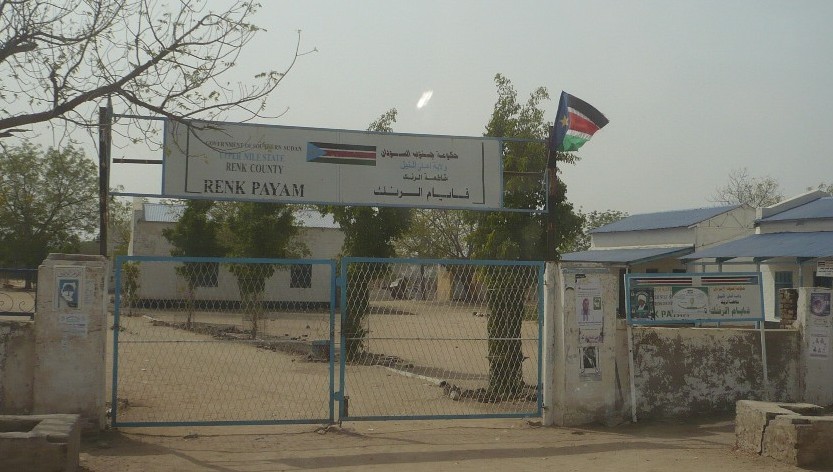You are here: Home | Featured | Humanitarian | News | Renk youth warned against confronting NGOs

Renk is one of the counties in Upper Nile State producing abundance of sorghum and sim-sim| Credit | Courtesy
The Inspector of Police in Renk County has advised young people in Upper Nile State against directly confronting humanitarian organizations operating in the area over employment issues.
The youth there have accused the organizations of failing to recruit from the local communities.
They have threatened to dispel the NGOs if their demands are not met.
Recently, they burnt down a store, an action the UN OCHA immediately condemned, saying it amounted to intimidation that only results in delays of the much-needed assistance to the most vulnerable people there.
Later on, a number of youth were arrested by authorities in Renk County for allegedly burning down a store belonging to Medair organization.
The youths were later released without charges.
Maj.-Gen. Manyok Deng says the youth should channel their concerns to the state government instead of taking on the NGOs.
“These NGOs are our guests and they come here to serve us, not to invest. Therefore, I am appealing to the youth refrain from any activity that is against any NGO,” he told Eye Radio on Thursday.
Meanwhile, the South Sudan NGO Forum has come to the defense of humanitarian organizations, stating that the locals cannot dictate the operations of the NGOs.
In a statement seen by Eye Radio, the NGO Forum – which comprises of 122 International and 407 National NGOs – said all the NGOs operating in South Sudan, abide by the Ministry of Labor requirements, including the NGO Recruitment Guidelines.
These instruments, it said, were developed by the forum in consultation with the state and national Ministries of Labor and the Relief and Rehabilitation Commission.
It states that the South Sudan Labor Law stipulates that at least 80 percent of the International NGO staff members must be South Sudanese.
The law, it added, does not condition that the 80 percent of those hired must be locals from a certain community where the NGOs operate.
It stressed that the law does not show preference to a particular ethnic group because of humanitarian principles.
The forum maintained that all International NGOs comply with this requirement, with nearly 90 percent – on average – of employees being South Sudanese.
It argued that the NGOs first show preference to local candidates when it comes to recruitment, but after going through the human resource processes.
The NGO Forum urged the youths to use the existing judicial system, the Ministry of Labor, the Relief and Rehabilitation Commission, and traditional routes to resolve their grievances.
Support Eye Radio, the first independent radio broadcaster of news, information & entertainment in South Sudan.
Make a monthly or a one off contribution.
Copyright 2024. All rights reserved. Eye Radio is a product of Eye Media Limited.